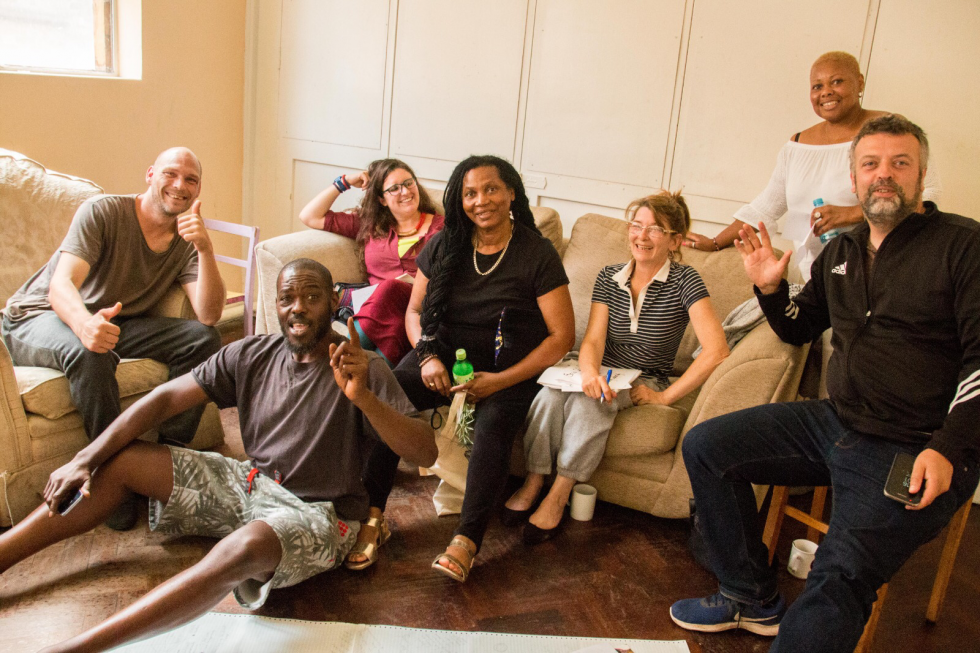There are shedloads of good processes and theories about raising community resilience: applying them in practice is harder, especially in disadvantaged communities struggling with everyday needs.
Future Conversations started as an unproven idea in Summer 2018: a series of eight facilitated discussions for 14-20 members of one community. We had material we wanted to offer: including some basic communication and group skills, and ways to face and respond to the climate crisis.
Through contacts with a few community organisers, we took this idea to several disadvantaged communities, and got a very positive reaction. Despite all the immediate pressures, there were people who really wanted to understand and explore climate change, and had no space to do so. As one of them said: “I am used to people rolling their eyes every time I open my mouth. The conversation needs to be had, no matter how hard it is.”
Crucial to our approach was offering Future Conversations in partnership with an organisation already well-established in its community. In January 2019 we ran a Train the Trainer programme, and our pilot programmes were mostly facilitated by one person from our core team, and one from the local partner. This made credibility and recruiting participants far easier.
The question of how to create change in a community is a crucial one. Our experience supports the analogy of yeast leavening dough: our programmes with 12-20 participants had a substantial ripple effect. Typically, we had to help form our groups: they didn’t know each other well, but were part of a loose-knit population of 150-400 people involved with a specific community centre, which itself was part of an urban neighbourhood of several thousand people or more.
Our guess was correct that early on we needed to provide skills in communication and handling differences. Some divergences in values and political preferences (eg Brexit) were heated, and the best answer was to live with them, not resolve them. This gave a basis for some deep, delicate opening-up of people’s fears and anger about climate change, which led on to some exciting creative togetherness about how their wider communities could respond.
I attended sessions with all three of our pilot communities, and always came away uplifted and touched. We successfully adapted and simplified some powerful processes, such as Joanna Macy’s Work that Reconnects. We truly listened to our participants and shaped content to their needs. We created safe circles in which passion and confusion, laughter and fears could be shared, and which enabled collective creativity for local initiatives.
In 2020, we have revised the content for online formats, and for the post-Covid outlook: for 2021, we can offer programmes for group or individual bookings online, and when restrictions change, we are happy to take bookings for groups to deliver sessions in person. We are also planning a Train the Trainer later in the year. For full details follow this link.

